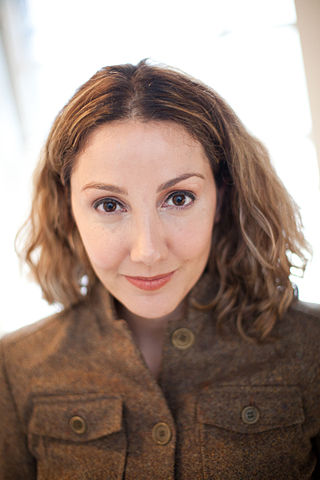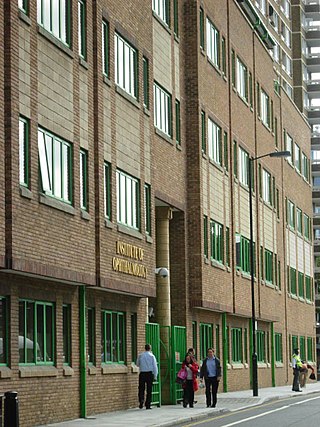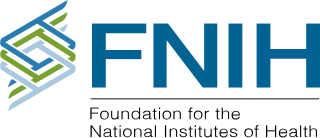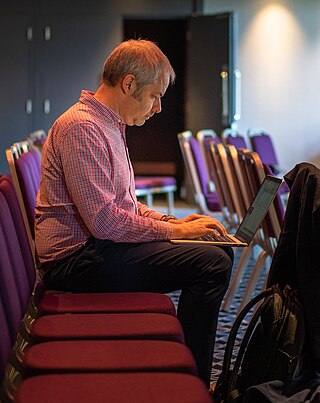Related Research Articles

The Wellcome Trust is a charitable foundation focused on health research based in London, United Kingdom. It was established in 1936 with legacies from the pharmaceutical magnate Henry Wellcome to fund research to improve human and animal health. The aim of the Trust is to "support science to solve the urgent health challenges facing everyone." It had a financial endowment of £29.1 billion in 2020, making it the fourth wealthiest charitable foundation in the world. In 2012, the Wellcome Trust was described by the Financial Times as the United Kingdom's largest provider of non-governmental funding for scientific research, and one of the largest providers in the world. According to their annual report, the Wellcome Trust spent GBP £1.1 billion on charitable activities across their 2019/2020 financial year. According to the OECD, the Wellcome Trust's financing for 2019 development increased by 22% to US$327 million.

Sir Henry Solomon Wellcome was an American pharmaceutical entrepreneur. He founded the pharmaceutical company Burroughs Wellcome & Company with his colleague Silas Burroughs in 1880, which is one of the four large companies to eventually merge to form GlaxoSmithKline. He left a large amount of capital for charitable work in his will, which was used to form the Wellcome Trust, one of the world's largest medical charities. He was a keen collector of medical artefacts which are now managed by the Science Museum, London, and a small selection of which are displayed at the Wellcome Collection.

The Cambridge Biomedical Campus is the largest centre of medical research and health science in Europe. The site is located at the southern end of Hills Road in Cambridge, England.
Europe PubMed Central is an open-access repository that contains millions of biomedical research works. It was known as UK PubMed Central until 1 November 2012.
Malaria vaccines are vaccines that prevent malaria, a mosquito-borne infectious disease which annually affects an estimated 247 million people worldwide and causes 619,000 deaths. The first approved vaccine for malaria is RTS,S, known by the brand name Mosquirix. As of April 2023, the vaccine has been given to 1.5 million children living in areas with moderate-to-high malaria transmission. It requires at least three doses in infants by age 2, and a fourth dose extends the protection for another 1–2 years. The vaccine reduces hospital admissions from severe malaria by around 30%.

Pardis Christine Sabeti is an American computational biologist, medical geneticist, and evolutionary geneticist. She is a professor in the Center for Systems Biology and Department of Organismic and Evolutionary Biology at Harvard University and on the faculty of the Center for Communicable Disease Dynamics at the Harvard T.H. Chan School of Public Health, and is an institute member at the Broad Institute and an investigator of the Howard Hughes Medical Institute.

The UCL Institute of Ophthalmology is an institute within the Faculty of Brain Sciences of University College London (UCL) and is based in London, United Kingdom. The institute conducts research and post-graduate teaching in the area of ophthalmology.
Chetan Eknath Chitnis is an Indian scientist in the field of malaria research. He is the head of the Malaria Parasite Biology and Vaccines Unit at the Institut Pasteur in Paris and an elected fellow of the Indian Academy of Sciences (2009) as well as Indian National Science Academy (2014). He received the Shanti Swaroop Bhatnagar Award in 2004 and the Infosys Prize in Life Sciences 2010. Chitnis is the former principal investigator of the malaria research group at the International Centre for Genetic Engineering and Biotechnology (ICGEB) in New Delhi.
Zhijian "James" Chen is a Chinese-American biochemist and professor in the department of molecular biology at University of Texas Southwestern Medical Center. He is best known for his discovery of mechanisms by which nucleic acids trigger innate and autoimmune responses from the interior of a cell, work for which he received the 2019 Breakthrough Prize in Life Sciences.
Russell J. Howard is an Australian-born executive, entrepreneur and scientist. He was a pioneer in the fields of molecular parasitology, especially malaria, and in leading the commercialisation of one of the most important methods used widely today in molecular biology today called “DNA shuffling" or "Molecular breeding", a form of "Directed evolution".

The Foundation for the National Institutes of Health (FNIH) is a not-for-profit, 501(c)(3) charitable organization established by the US Congress in 1990. Located in North Bethesda, MD, the FNIH raises private-sector funds, and creates and manages alliances with public and private institutions in support of the mission of the National Institutes of Health (NIH).

Akiko Iwasaki is a Sterling Professor of Immunobiology and Molecular, Cellular and Developmental Biology at Yale University. She is also a principal investigator at the Howard Hughes Medical Institute. Her research interests include innate immunity, autophagy, inflammasomes, sexually transmitted infections, herpes simplex virus, human papillomavirus, respiratory virus infections, influenza infection, T cell immunity, commensal bacteria, COVID-19, and long COVID.

Julian Charles Rayner is a New Zealand malaria researcher, and the Director of the Cambridge Institute for Medical Research, part of the University of Cambridge School of Clinical Medicine. He is also Director of Wellcome Connecting Science. He was previously a member of academic Faculty at the Wellcome Sanger Institute.
Suman Kumar Dhar is an Indian molecular biologist and a professor at the Special Centre for Molecular Medicine of Jawaharlal Nehru University. He is known for his studies on the DNA replication and cell cycle regulation in Helicobacter pylori and Plasmodium falciparum, two pathogens affecting humans. An elected fellow of the National Academy of Sciences, India, Indian National Science Academy and the Indian Academy of Sciences, he is also a recipient of the National Bioscience Award for Career Development of the Department of Biotechnology in 2010. The Council of Scientific and Industrial Research, the apex agency of the Government of India for scientific research, awarded him the Shanti Swarup Bhatnagar Prize for Science and Technology, one of the highest Indian science awards, in 2012, for his contributions to biological sciences.
Alan Frederick Cowman AC, FRS, FAA, CorrFRSE, FAAHMS, FASP, FASM is an internationally acclaimed malaria researcher whose work specialises in researching the malaria-causing parasite, Plasmodium falciparum, and the molecular mechanisms it uses to evade host responses and antimalarial drugs. As of May 2024, he is the deputy directory and Laboratory Head of the Walter and Eliza Hall Institute of Medical Research (WEHI) in Melbourne, and his laboratory continues to work on understanding how Plasmodium falciparum, infects humans and causes disease. He was elected as a fellow of the Royal Society in 2011 and awarded the Companion of the Order of Australia in 2019 for his "eminent service to the biological sciences, notably to molecular parasitology, to medical research and scientific education, and as a mentor."
Ana Rodriguez is a parasitologist and Professor in the Department of Microbiology at New York University School of Medicine. Her research focuses on Plasmodium falciparum and Trypanosoma cruzi and she is known for her work on Plasmodium liver infection, Plasmodium immunity, and T. cruzi drug development.
Maurizio Del Poeta is a Distinguished Professor in the Department of Microbiology and Immunology at the Stony Brook University Renaissance School of Medicine. His research focuses on novel anti-fungal drug discovery and lipid-mediated fungal pathogenesis.
Elizabeth Ashley is a British physician who is Director of the Laos-Oxford-Mahosot Hospital-Wellcome Trust Research Unit (LOMWRU) in Laos. She specialises in infectious diseases and medical microbiology and virology. She is an associate editor for the Malaria Journal and serves on the Council of the International Society for Infectious Diseases.
Sanjeev Krishna,, is a British physician and parasitologist whose research focuses on affordable diagnosis and treatment of diseases such as COVID-19, malaria, Ebola, African trypanosomiasis, leishmaniasis, and colorectal cancer. Krishna is Professor of Medicine and Molecular Parasitology at St George's, University of London and St George's Hospital.

David A. Fidock, is the CS Hamish Young Professor of Microbiology and Immunology and Professor of Medical Sciences at Columbia University Irving Medical Center in Manhattan.
References
- ↑ Proceeding of the BEST Practices Workshop. Retrieved on January 16, 2020
- ↑ Research Triangle Park Foundation. Retrieved on January 23, 2020
- ↑ Burroughs Wellcome Fund. Retrieved on January 23, 2020
- 1 2 "Burroughs Wellcome Fund | NCpedia". www.ncpedia.org. Retrieved 3 November 2023.
- ↑ "Assistant Professor Ivalyo Ivanov wins a Burroughs Wellcome Fund's Investigator in the Pathogenesis of Infectious Disease Award". Columbia University Department of Microbiology & Immunology. Retrieved 3 November 2023.
- ↑ "Burroughs Wellcome Fund award expands opportunities for physician-scientists". VUMC Reporter. Retrieved 3 November 2023.
- ↑ "Innovation in Regulatory Science Awards | Research Funding". Duke University Research Funding. Retrieved 3 November 2023.
- ↑ Institutes of Medicine. Retrieved on January 23, 2020.
- ↑ "Database Lets Researchers Worldwide Access the Genome of the Malarial Parasite Plasmodium falciparum". Penn Today. 20 October 2002. Retrieved 3 November 2023.
- ↑ "Strategies to Leverage Research Funding: Guiding DOD's Peer Reviewed Medical Research Programs". The National Academies Press: 44. 27 October 2004. doi:10.17226/11089 . Retrieved 3 November 2023.
- ↑ Murphy, Mary Kate (27 December 2019). "West Pine Teacher Mariah Morris Making Most of Her Statewide, National Platform". The Pilot Newspaper. Retrieved 3 November 2023.
- ↑ Dance, Amber (April 17, 2013). "Regulatory Science: Researchers in the Pipeline". Nature. 496 (7445): 387–9. doi: 10.1038/nj7445-387a . PMID 23646375.